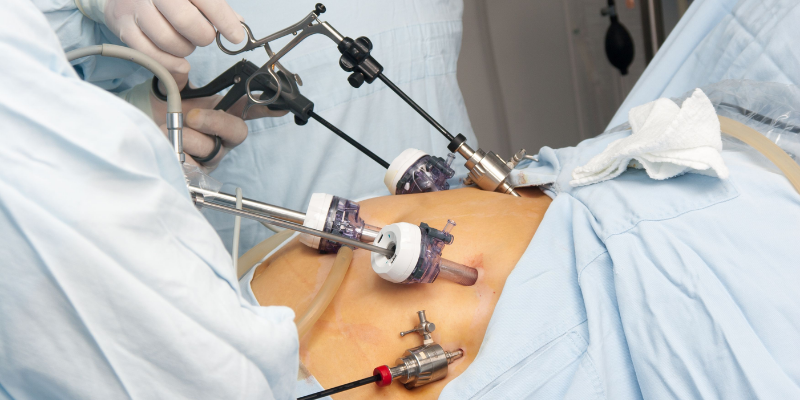Bariatric Weight Loss Surgery
Bariatric weight loss surgery, obesity affects around 13% of the world’s population. Women account for 13% of this rate, while males account for 11%. As a result of a poor diet and lack of exercise, this rate is steadily rising. Obesity is a worldwide health issue that leads to major health issues and mortality. Obesity, or being overweight, is responsible for 55 percent of hypertension, 80 percent of type 2 diabetes, and 35 percent of ischemic heart disease in Europe, according to WHO data. According to research, around 3 million individuals died from obesity-related disorders in 2010. Obesity raises your chance of having any disease by 70%, and it also increases your risk of dying by 50%.
If not taken into account, these statistics are expected to rise dramatically in the following years. Obesity is a health concern caused by the buildup of extra fat in the body to a level that is harmful to one’s health. While men’s adipose tissue should account for 15-20% of their total body weight, women’s adipose tissue should account for 25-30%. This is the usual range for a healthy person to be in. When the quantity of adipose tissue in men exceeds 25% and in women exceeds 30%, the person is considered obese. The Body Mass Index (BMI) calculation is used to determine whether or not a person is obese. This figure is based on your height and weight. The BMI is calculated by dividing a person’s weight by their height in kilograms per square meter (kg/m2).
Bariatric Weight Loss Surgery Methods
Obesity is becoming a more severe issue for people of all ages and socioeconomic backgrounds. Before you can answer the question “What are the treatments and methods for obesity?” you must first understand what causes it. Individuals may be more prone to obesity due to hereditary reasons, environmental situations, health issues such as hormone abnormalities, psychological illnesses, and cultural practices. Furthermore, altering living conditions and styles as the modern era progresses is one of the most critical factors influencing our eating habits.
People are eating more unhealthy due to the rising predominance of ready-to-eat meals and the fact that healthy and organic foods are substantially more expensive than the food group known as fast food. The fact that it is so difficult to obtain healthful foods is, regrettably, the root of the obesity epidemic. Again, the habit of overconsumption, which continually press on us, has the greatest impact on our physical health. The individual must inform of obesity treatment and procedures, as well as the fact that treatment is a process; he should be conscious that it will not resolve overnight. After a certain point, obesity begins to endanger the patient’s life, and treatment becomes necessary.
Before reaching this stage, the patient should make it a point to engage in frequent sports and eat a well-balanced and nutritious diet. Before beginning treatment, you should see a nutritionist (dietician), a psychiatrist, an endocrinologist, a physical therapist and rehabilitation expert, a cardiology and chest diseases specialist, and an internal medicine doctor, as well as undergo any necessary tests. After you’ve completed these steps, you should begin the therapy technique that your doctor recommends for you.
What Factors Cause Obesity?
Obesity caused by a number of factors, including sociocultural level, psychosocial structure, the presence of fat persons in the family, dietary habits of family members or those close to them, economic position, living circumstances, existing psychiatric and physical problems, and so on. There might be a slew of them. A person’s susceptibility to obesity is also influence by characteristics such as age, gender, geography, and race. Knowledge of one’s educational, marital, occupational, and other habits, such as smoking, drinking, and participating in sports, is helpful in the therapeutic process. Obesity risk in women increased by the pregnancy process and the number of pregnancies.
How Does The Obesity Treatment Process Proceed?
Nutrition, healthy living practices, regular exercise and physical activity, and stress management are all part of the obesity treatment process. Bariatric surgical procedures such as sleeve gastrectomy may perform depending on the patient’s condition. The effectiveness of the therapy procedure determine by a number of elements.
Regular Exercise and Physical Activity
As the body’s weight grows, the amount of energy burned decreases. As a result, we may argue that the weight-to-energy-burn ratio is inversely proportionate. This is the origin of the proverb “It works even if I drink water.” Your body begins to burn less as you acquire weight, and your metabolic rate lowers. Regular exercise and physical activity, which help your energy-burning, are some of the most significant variables to follow in the effective outcome of obesity therapy.
Stress Management
Individuals might develop eating disorders as a result of stress and strain, which can be internal or external in nature. There are several biochemical, physiological, and psychological variables that contribute to stress. Individuals who struggle with stress management are more likely to turn to food as a stress reliever. Obesity is a condition that arises when a person’s relationship with food changes and becomes out of control. Both in the process of getting fat and in the treatment of obesity, stress management is an issue that must address. Assisting and encouraging the patient to avoid stressful situations will have a good impact on the healing process.
Nutrition
Obesity caused by an unbalanced and poor diet. When you initially begin therapy, the first thing you must address is your dietary habits. We propose that you apply to a dietician who is a specialist in his area and work with him in order to spend this procedure more efficiently. Foods and diets advertised on the internet might have a considerably greater harmful impact on your health. Treatment for obesity will vary depending on the biological and physiological structure of the patient. Furthermore, seeking expert assistance in the management of obesity is the healthiest option. We do not advise dieting without first seeing your physician.
Obesity therapy is highly influence by support. The person’s material and moral drive guarantees that the process proceeds in a healthier and more effective manner. Obesity therapy, like any disorders, would require ongoing support from the patient. It is critical that this assistance comes from a tight group or from specialists.
Would a Bariatric Weight Loss Surgery Change My Life?
Bariatric weight loss surgery is a viable option for those who are severely obese and have not had success with other weight loss methods. For those interested in pursuing this type of procedure, research the types of surgeries available and consult a qualified medical professional to determine which type best suits their needs and health status.

Additionally, it is vital to find a surgeon specializing in bariatric weight loss surgery with an excellent track record of successful patient outcomes. You do not want to risk your life for weight loss. Understand all the risks associated with any surgery and weigh these against potential benefits to make an informed decision.
Post-surgical care should include dietary and lifestyle modifications such as increased physical activity and nutritional counseling to maximize long-term results. By following these steps, individuals can ensure that they receive safe, effective treatment for their obesity to help them reach their health goals.
In addition to considering all available treatment options and finding a reputable surgeon, those considering bariatric weight loss surgery should also be aware of potential risks associated with the procedure. If you have specific questions like “can I drink alcohol after bariatric surgery?” regarding the procedure, contact us today to book your free consult and see if you are eligible for a weight loss surgery.



